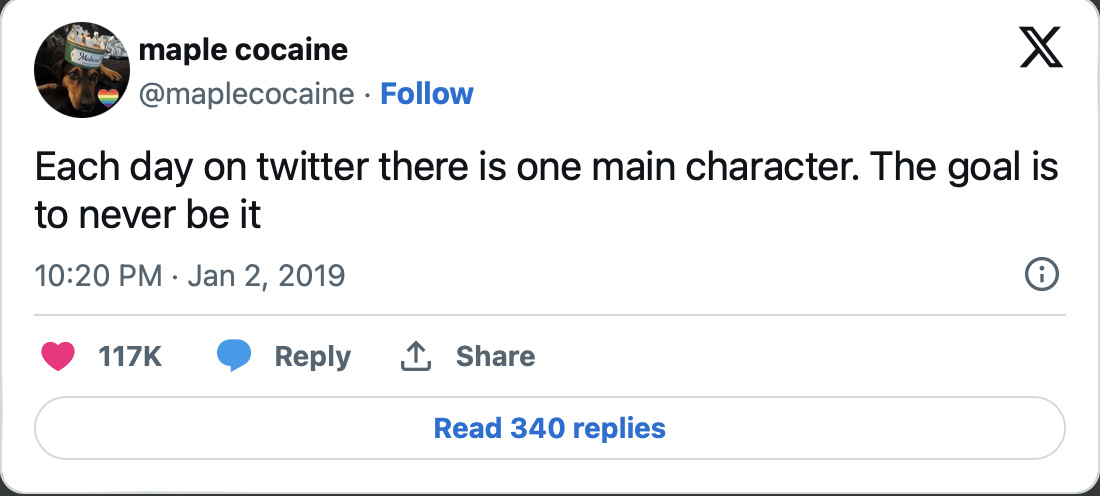In the early days of the internet, my hope was to be noticed. I wanted people to respond to a forum post. I wanted people to recognize my handle and know who I was and where I came from. I wanted to construct an identity among strangers that was meaningful and respected. I was a teenager, and what more does a teenager want than acceptance by peers and adults alike as a member? But there was another difference–I was speaking within a community of strangers.
During this time when I’m turning down the dial on social media feeds, I wonder: do I still want to be noticed? Frankly, being noticed seems to be a nightmare.
But it’s hard to build communities on top of a globally shared commons. On the classic college quadrangle you might put down a blanket and stake out a spot under a tree with friends. You might setup a table for a club or group with signs and materials and goodies to attract others. You might be projecting loudly making a statement looking to net in passerbys. Social media believes that it is creating this type of public commons 1.
The problem is that social media is overcrowded, so the separation into smaller communities is hard to maintain. Worse than that, social media wants to be crowded. Social media makes its money when we’re jammed packed in just a few huge crowds. So the tools they provide on their platform are designed specifically to draw in bystanders and to amplify each individual voice so that it bleeds into every surrounding community. Everyone is close together, everyone is shouting, and everyone participates in simultaneously overlapping communities.
We don’t have “rooms” or “boards” or “channels”–we have the feed. I think this is a huge part of why Slack, Discord, and Twitch have found popularity for social use. They are designed to be smaller communities and they provide some organizational power within those communities to find a space on the quad where you can engage in exactly the activity you want. You can actually tell what community you’re trying to be a part of and gain acceptance through participating in what that community values.
What does my feed value? Why does anyone talk to me as an individual communicating across many non-overlapping communities that I want to be noticed by? How do I find my way into any of those spaces? And, importantly, in a world that feels increasingly isolated and lonely to me,2 how do I find a supportive community?
I used to defend the relationships I built online as “real”, scoffing at the idea that there was anything lesser about my “virtual” friends and community. I was right then. I couldn’t take that same stance about the internet we have now.
If my goal is to build community, I need to make that my project. The tools we have make participation wholly insufficient. I think I need to find ways to translate weak ties into meaningful bonds by taking the budding friendships and community out of the social commons. That may mean taking the step to find a way to meet in person, or getting an email address, or getting on a video call or something. Maybe it means finding a way to work together. But social media has taught me to collect as many weak ties as possible with no mechanism to bring them together into community.
This tweet was originally embedded but has been replaced with a screenshot due to changes in the Twitter service
-
The more common analogy we hear is the “town square”, probably because it’s seen as less elitist than a college quad. But in the year 2021 and in the United States, none of us have really experienced that kind of town square. They don’t exist in our urban form, so they’re just not a helpful comparison. ↩︎
-
Thanks, pandemic. ↩︎
